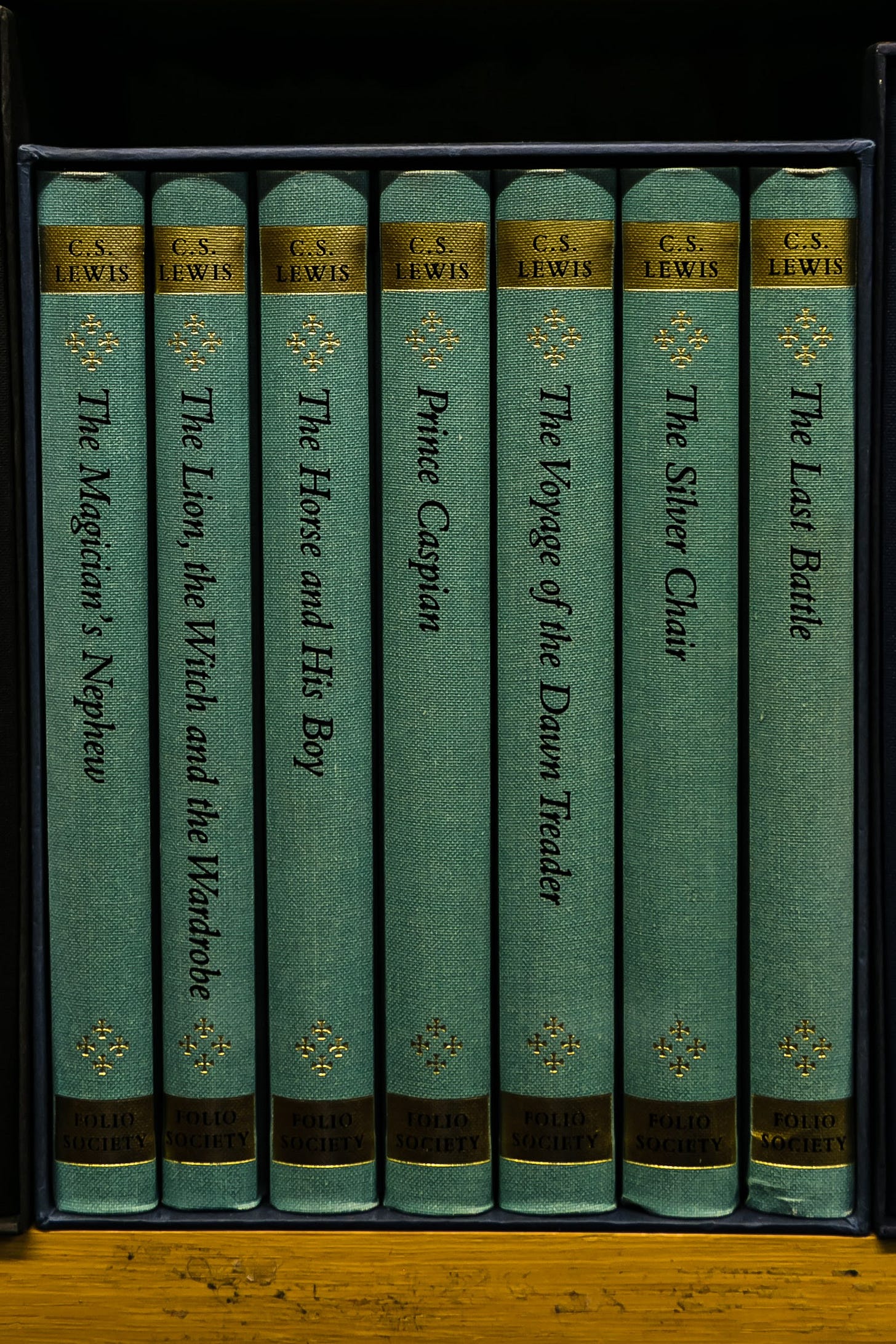Lessons from the Dawn Treader
What so many dissatisfied and unhappy people in our churches fail to realize is that the fullness in life they're looking for can only be found in the gospel.
In 2013 I had the opportunity to spend some time in Cambridge and Oxford with Dr Robert Banks studying the life and works of C.S. Lewis as part of my doctoral studies. It was probably the most enjoyable study break I’ve ever had. Out of that came short reflections on his work that I’ve decided I’ll start to share here. Lewis’ most popular work of fiction is probably The Lion, The Witch & The Wardrobe which is what most people would have read or watched at the movies. It’s only the first one in Lewis’ Narnia series of which there are seven books you must read. The story is only complete with The Last Battle.
The Voyage Of The Dawn Treader is the third in Lewis’ Narnia series. It tells the story of how Lucy and Edward with their cousin Eustace find themselves back in Narnia on board the Dawn Treader on a voyage with Prince Caspian in search of the seven missing Lords. (p.20) In many ways, the journey for them is a journey into the unknown as they travel the seas in search of the missing Lords. This journey though is not just a journey of sailing into the unknown, but also a journey into the unknown for each of Lewis’s characters, where they discover things about themselves. In this journey, you’ll find two things.
Firstly, Eustace who comes across as a most despicable character (proud, spiteful, grumbling, greedy) ends up being entrapped by his own darkness. We read that, ‘he had turned into a dragon while he was asleep. Sleeping on a dragon’s hoard with greedy, dragonish thoughts in his heart, he had become a dragon himself.’ (p.73) At this point, it’s only as he experiences what he’s lost as a monster cut off from the whole human race, from the others who were really his friends does he realize his own self righteousness and pride, and weeps in despair. (p.74) As a dragon it’s clear to everyone, Eustace’s character improves as he helps, and the pleasure of being liked and of liking others keeps him from despair. (pp.80-81) His transformation is finally complete when he meets Aslan to whom he surrenders to, who’s claws removes the dragon skin that covers him, washing him in a pool of water before dressing him. (pp.85-87) What follows according to Lewis is great rejoicing as Edmund returns with the ‘restored Eustace’. And the jewels which had lined Eustace’s pockets have disappeared with the clothes he’d been wearing, and neither was there any desire to go back to the valley for more treasure. Eustace’s story in many ways echoes the story of lostness in the Scriptures, particularly the lost son in Luke 15, who until he’s cut off and in the depths of despair never comes to his senses. Eustace never realized how lost he was, or what he had in others, until he was cut off and alone, and until he saw his own heart. Eustace is actually a picture of Christian conversion. There is blindness to self and one’s own sinful heart. There is an awakening or seeing of the desperate situation one is in. There is a turning around. And there is a surrender to the one who is able to save or rescue. This is also accompanied by new desires, because the old is gone, and the new has come. (2 Cor.5:17)
Secondly, in the Dawn Treader’s journey into the unknown ocean, Aslan’s appearance comes at critical moments of danger or need. As Edmund and Caspian fall under the spell of gold on Goldwater Island, Aslan’s appearance breaks the spell. (p.100) As Lucy is captivated by the temptation of the magic book to make herself beautiful, Aslan’s appearance redirects her longings and saves her. (pp.120, 122-124) As the Dawn Treader is lost in the Dark Island and the ship borders on mutiny, Aslan appears in the form of an albatross speaking courage and leading them back into the sunlight. (p.143) In the journey into the unknown, the temptations that accompany these dangers are only overcome with a vision of what is far greater, in this case Aslan.
In many ways this echoes Thomas Chalmer’s The Expulsive Power Of A New Affection where he highlights that only the power of a new and far greater affection can free us from all other passions, desires, loves, worldliness and temptations we face in life, namely God in his greatness and goodness. It’s not surprising then that the Christian journey in the New Testament echoes that very same sentiment. Paul in Colossians 1:15-20 holds up the supremacy of Christ in his rule and salvation, in his power and in his love, before calling on his readers in Colossians 2:6-7 to, ‘continue to live in him, rooted and built up in him, strengthened in the faith as you were taught, and overflowing with thankfulness.’ The only way to avoid being taken captive to the spell of other voices is by constantly reminding ourselves that our desire for fullness in life has come in the supremacy of Jesus. There is no one or anything greater one can possess or be filled with. (Col.2:8-10) Just as safety and deliverance in The Voyage Of The Dawn Treader was dependent on a vision of Aslan’s greatness, so too safety and deliverance in the Christian life depends on a vision of the greatness of God in the face of Jesus Christ. (2 Cor.4:6)
What so many dissatisfied and unhappy people in our churches fail to realize is that part of the Christian journey towards maturity and finding the fulness in life they’re looking for will only be found in having the supremacy of Jesus in his rule and salvation fill their lives more and more. The good news of Jesus is not what we begin with and leave behind, it’s what we need to keep coming back too. So we never grow out of Jesus, but we’re to grow instead to be filled with Him in his rule and salvation, in his power and love more and more.
Turn your eyes upon Jesus,
Look full in His wonderful face,
And the things of earth will grow strangely dim,
In the light of His glory and grace.
Perhaps what we need most when we find ourselves dissatisfied and unhappy in the Christian life is a bigger vision of Jesus, or to put it more appropriately a right vision Jesus in his supremacy in his rule and salvation for us.
Note: page numbers are from C.S. Lewis, The Voyage Of The Dawn Treader. London: HarperCollins, 2002.







Thanks for sharing your thoughts and reflections on VotDT (which is either the 3rd or 5th book in the series depending on which order you choose to follow, both accepted by Lewis) - it takes the scenario of Britain’s era of colonialism and exploration and turns it into an outward journey of the inward heart. The further out they go the more the characters are humbled by the dangers they face, until they really reach the edge of the world, the end of a quest, to begin their next one.
I love how Eustace’s changed character continues in The Silver Chair, and I’ve always been sad once I finish reading The Last Battle. There is so much below the iceberg in Narnia, and I’m always left wishing it were all real. And thankfully in a heavenly sense it is.
Very interesting Euge, glad to read your thoughts again! What would possible responses be to someone who does entrust their fullness in life to Christ, and is also disappointed/dissatisfied in how their church & Christian life is going? (The people who aren't part of that "most people" at church).